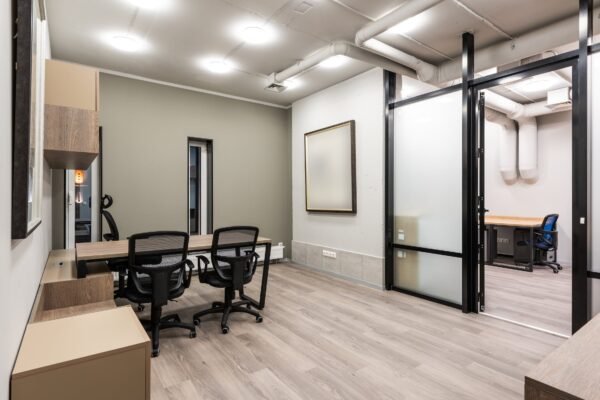It’s a highly motivating idea to start your own business. Being able to get out there and put your ideas into the world is one thing but actually acting on those ideas and bringing them to life in a business is a whole other ball game. You want to do more than the standard 9 to 5, and you want to work for yourself and not someone else who will tell you what to do. This is all exciting and encouraging, but it doesn’t mean it’s going to be easy to make the swap. Starting out on your own is exciting if you are a first timer but there is a lot that you’ll have to learn to make sure that you can bring your business to life.
It’s a good decision to start something new if you have the stomach for it, but it can be exceptionally challenging and stressful, too. It’s really not as simple as it looks. You have to consider what you are hoping to build, what you want to sell, how you plan to sell it and you have to start all of that by writing your business plan. This is going to take some time, with pharmaceutical packaging companies being listed so that you know who to turn to when it comes to each avenue of your business. You are going to be able to jump into this adventure with both feet but you want your business to thrive. For that to work, we’re going to share some tips with you that you need to consider. Don’t allow your business to be one of those that fall behind if you can help it – and our tips can help you with that, too. So let’s take a closer look at how you can be on track when you start your own business.

Consider the nature of your new business. What are you planning to offer? This is the very first question that you have to ask yourself when you get started out for the first time. What you offer to your customers is going to establish you as a leader in the field – or not. Are you selling a service, offering merchandising, or planning to go into manufacturing? These are three things that your business will be geared around and once you decide what your business nature will be, you’ll find it much easier to get a foothold in a particular industry. Services can be sold whether it’s time or expertise, and in merchandising businesses you might choose to sell products wholesale. You could go the whole hog and manufacture the products you want to sell and that is a bigger step than any other!
Consider your target customers. Once you have established the nature of your business, you need to think about who you are advertising to. What does your ideal customer look like? What’s their buyer persona? Having a product or a service makes no difference if you don’t have people to buy from you. If you plan to get your business off the ground, knowing who your target customer is will be a vital component in ensuring that you get this right. You need to do your calculated research here because a product or service that suits everyone is a service or product that truly suits no one at all. If you try to appeal to too many people you’re going to end up with a washed out business model that doesn’t work.
Where are you planning to be based? Whenever you ask anyone for advice about your business you’re going to be told to consider location first and foremost. Is your business going to be too far out that customers can’t get there? Are you planning to be in the city or the country? You need the location of your business to work well and that means looking for the best location for the business – this means that it has to be seen by all. Identifying the right location takes some time as you want to ensure you’re not paying too much rent while allowing your target audience to find you at the same time.
Are you going it totally alone? Most business owners make this choice pretty early on. When you know what you’re offering, you need to think about how you will form this business. Arey ou going it alone as a sole proprietor or are you heading into a partnership with someone else? Perhaps you want more than one of you on the header? Corporations can be formed for this very reason. You can register as a one-person corporation if you want to but it can often be helpful to have a few names on the header of your business.
Money, money, money. It makes the world go around and it’s one of the toughest things about starting a business. You need capital and cash and you need to consider the amount you need to get your business off the ground and into the world. Some capital is not cash-based and to know how much of it you’ll need, you need to start listing your assets that you have vs those that you need to purchase, things you need to renovate, how much a lease will cost and your operating expenses. When you have all this noted down, you’ll find it easier to determine where you need to start looking, e.g., getting a Working Capital Loan Application, and how you plan to spread out your costs!
Consider insurance. Even if you’re not planning on failing, sometimes it might not go your way. Therefore, make sure to get a liability insurance to protect your business.

Get to know your asset requirements. What assets do you need to get your business going? Do you need computers and equipment? Furniture? Vehicles? All of these things have to be thought of when you are deciding what you need. List everything down from where you’ll find it to the price you’ll pay. To save on your costs, consider purchasing used currency counter machines and other pre-owned business equipment. Assets are a must if you hope to build your business into something big.
Are you renting or buying? A big consideration for business owners is whether they plan to rent or buy their business property. If you are just starting out you might consider whether you need to buy a whole business property or if you would prefer to rent a space for a while. The space you take up for your business is going to matter and it’s a cost that you have to factor up to six months in advance. Commercial leases are often more expensive so you have to think about these costs in your business plan.
Who will supply your business? When you are putting together your business plan it matters who your suppliers are. From your packaging to your products, you need to know their prices, locations, reliability and operating hours.
What about your day to day? What does your day to day expense look like? Your spending and expenses matter and you have to map this out early. Your day to day spending is going to impact your business and it will help you to determine your capital requirement. You might need to have at least a year of projected expenses in the bank so that you can keep up with your costs.
Have you thought about hiring? Are you planning to do the whole thing alone or are you going to have people by your side to help? Hiring costs money and time and people management is often one of the hardest things that you will do in your role. As a leader, you have to think about whether you bring on permanent daily employees, or whether you decide to outsource en masse. Hiring is going to be a big slice of your expenses and you should consider that in your budget. Know what employees you need to have on site, and then who you need outside of the business, too.
You need to think about registering your business. When you consider your capital and your expense requirements, it’s vital that you consider that you have the right registrations in place. You need to have your employees tax registered as well as have our business registered for tax purposes, too. Consulting with a legal expert like a business tax attorney Frisco can ensure that your registrations are accurate and compliant with local and federal tax laws.
What are you doing about marketing? There are rarely businesses that can sell themselves without a good business marketing plan. It’s actually one of the key things that you need for your business to succeed while it’s also something that can cause it to fail. If you ensure that your marketing plan is a solid one, you will have a good solution for your business.
Don’t forget to interview accountants. You need to think about how you plan to manage your money and that means you need to figure out your arrangements for accountants and tax issues. You need an accountant to help you to manage your paperwork and payments, and if you ensure that the accounting team is working with you, not against you, you’ll find that you have a supportive environment to get your new business off the ground as soon as possible.
